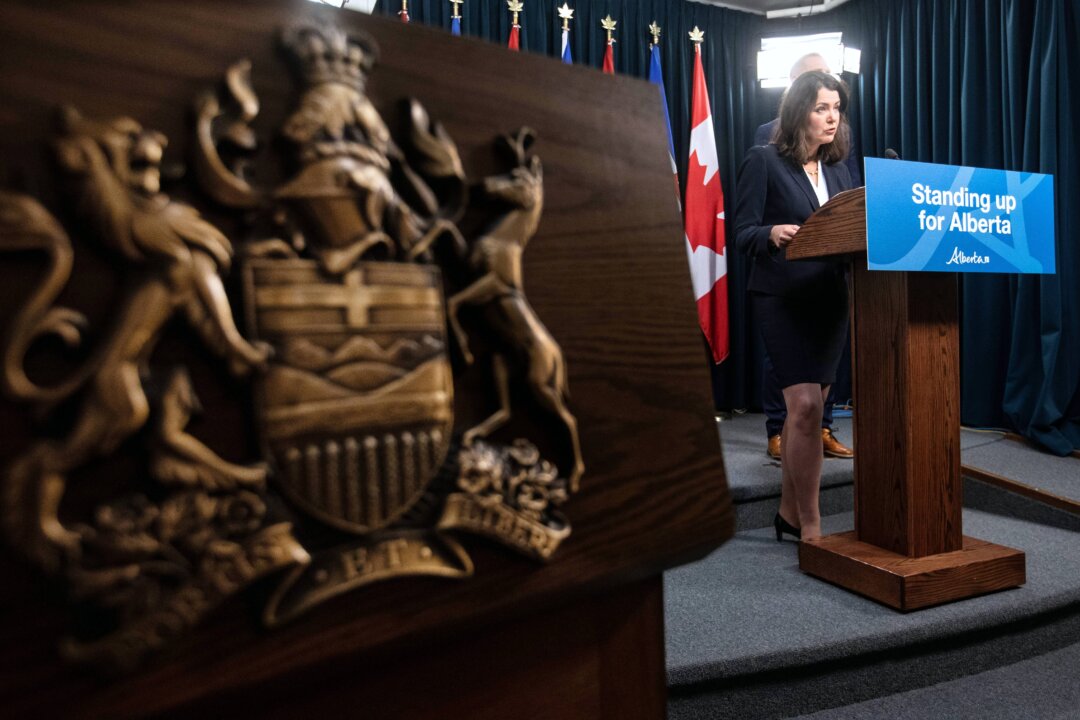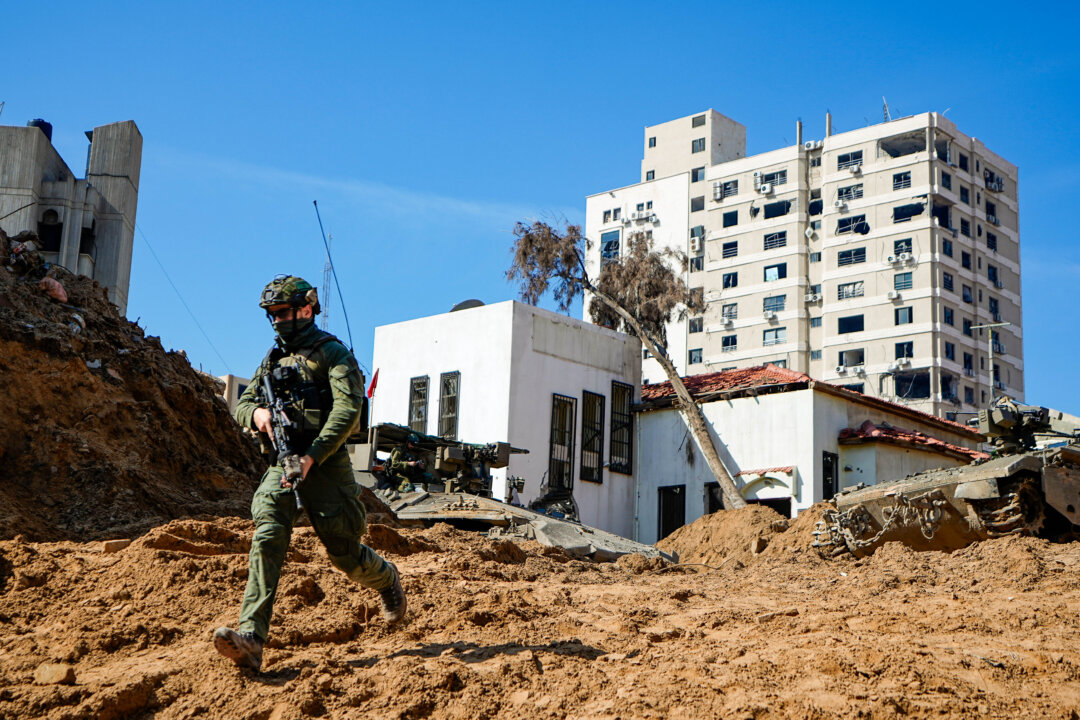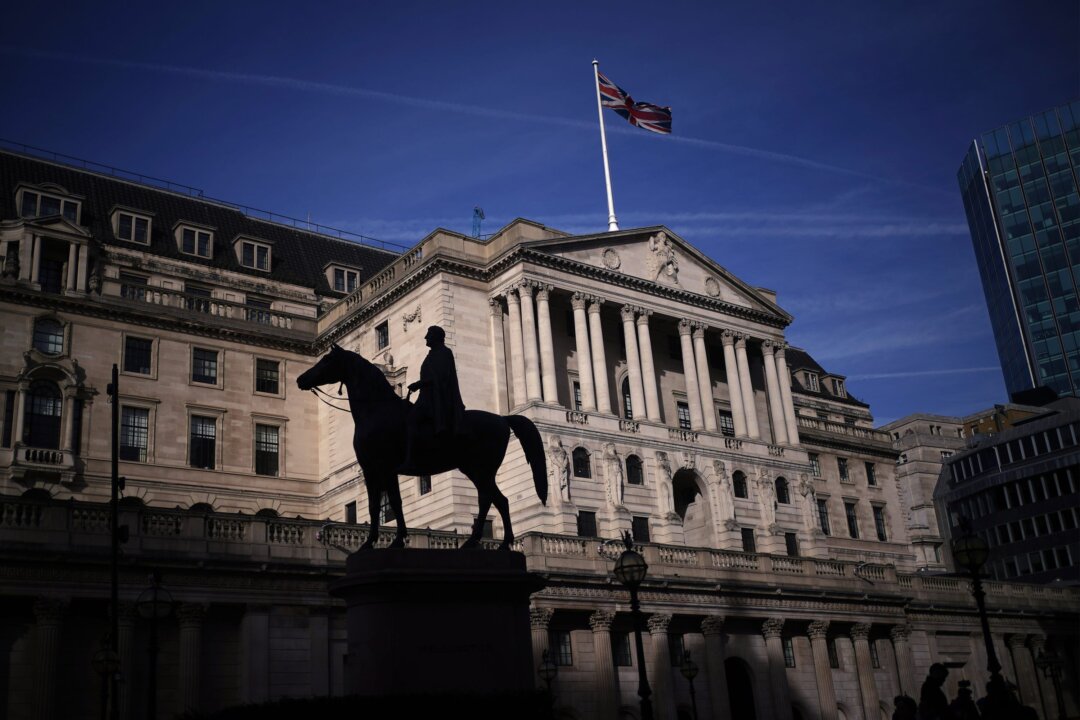Longstanding leader calls for dialogue with the West ‘free of arrogance, conceit, or sense of exceptionalism.’
Vladimir Putin, Russia’s longstanding leader, was sworn in on May 7—at noon Moscow time—for a fifth term of office after sweeping elections in March.
The move gives Mr. Putin six more years, until 2030, at the helm of the ex-Soviet Eurasian powerhouse.
Attended by a galaxy of Russian officials and foreign dignitaries, the swearing-in ceremony was held at the Grand Kremlin Palace in Moscow.
In a post-inaugural address, Mr. Putin reiterated calls for “dialogue”—presumably with the West—on “issues pertaining to security and strategic stability.”
He added, however, that such dialogue should not be “held from a position of strength, but should be free of arrogance, conceit, or a sense of exceptionalism.”
“Parties should be regarded as equal and take each other’s interests into account,” the Russian leader asserted.
Touching on some of his favorite themes, he also hailed the “Eurasian integration process,” stressing Moscow’s commitment to forging a “multipolar world order.”
Mr. Putin and his ideological allies often criticize what they view as a Western-led “unipolar world,” which they claim is controlled by the United States.
He listed Russia’s top priorities as “ensuring sustainable population growth, preserving the nation’s civilizational values, and further developing ties with countries of the global majority.”
Notably, the United States and most European Union countries—with the exception of France, Hungary, and Slovakia—declined to send representatives to the swearing-in ceremony.
“We will not have a representative at his inauguration,” a U.S. State Department spokesman said.
“We certainly did not consider the election fair,” the spokesman added. “But he [Mr. Putin] is the president of Russia and is going to continue in that capacity.”
 Preliminary results of the presidential election are displayed at the headquarters of Russia's Central Election Commission in Moscow, Russia, on March 17, 2024. (Shamil Zhumatov/Reuters)
Preliminary results of the presidential election are displayed at the headquarters of Russia's Central Election Commission in Moscow, Russia, on March 17, 2024. (Shamil Zhumatov/Reuters)Controversial Win
Mr. Putin secured his new term by winning 87 percent of the vote in a three-day presidential election held in mid-March.
While critics have questioned the results, Mr. Putin’s strong showing was preceded by opinion polls that typically put his approval rating at more than 80 percent.
The Epoch Times cannot independently verify these figures, which the Russian leader’s critics—both at home and abroad—say are exaggerated.
The election saw Mr. Putin defeat three challengers, none of whom posed a serious threat to the incumbent leader.
Mr. Putin ran as an independent despite his close links with the United Russia party, which holds 325 out of 450 seats in the State Duma (lower house of parliament).
Established in 2001, United Russia has held a majority of assembly seats since 2007.
Although Mr. Putin is no longer a formal member of the party, he is widely regarded as its de facto leader.
The Just Russia party, which holds 28 Duma seats, also endorsed Mr. Putin’s candidacy.
Controversially, residents of what Moscow calls the “new territories”—Donetsk, Luhansk, Kherson, and Zaporizhzhya—also voted in the recent poll.
Moscow effectively annexed the four Ukrainian regions in 2022—after holding referendums—and now considers them part of the Russian Federation.
Ukraine and its Western allies reject the annexations and regard all four regions as “Russian-occupied territory.”
Kyiv, for its part, decried the recent election, saying it showed Moscow’s “flagrant disregard for international legal norms and principles.”
Washington also condemned what the State Department called “sham elections held in occupied Ukrainian territories.”
In a May 6 statement, Ukraine’s foreign ministry said Kyiv “sees no legal grounds for recognizing him [Mr. Putin] as the democratically elected and legitimate president of the Russian Federation.”
It went on to accuse Mr. Putin of turning Russia “into an aggressor state and the ruling regime into a dictatorship.”
Mr. Putin is widely portrayed in the West as a dictator and war criminal, due largely to Moscow’s invasion of eastern Ukraine, now in its third year.
In February, U.S. President Joe Biden, who will himself face contentious elections later this year, called his Russian counterpart a “crazy S.O.B.”
 Russia's President Vladimir Putin gives an interview to U.S. talk show host Tucker Carlson at the Kremlin in Moscow on Feb. 6, 2024. (Gavriil Grigorov/AFP)
Russia's President Vladimir Putin gives an interview to U.S. talk show host Tucker Carlson at the Kremlin in Moscow on Feb. 6, 2024. (Gavriil Grigorov/AFP)25-Year Rule
But Mr. Putin, who has led his country for almost 25 years, appears to enjoy broad support among the vast majority of his domestic constituents.
Supporters credit him with restoring Russia after the Soviet Union’s collapse in the early 1990s and standing up to what many regard as a hegemonic and decadent West.
Mr. Putin, 71, was first appointed Russia’s acting president by Boris Yeltsin on the last day of 1999.
Russia’s first post-Soviet leader, Mr. Yeltsin served as president from 1991 to 1999, when he appointed Mr. Putin as his successor.
In 2000, Mr. Putin won a presidential election with 53 percent of the vote. He was reelected in 2004, clinching 71 percent of all votes cast.
Dmitry Medvedev, a close Putin ally (now deputy head of Russia’s Security Council), won the next election in 2008, while Mr. Putin assumed the post of prime minister.
Mr. Putin returned to the presidency in 2012 after winning elections with almost 64 percent of the vote.
The next poll was held in 2018 after a constitutional change extended the length of the president’s term from four to six years.
Mr. Putin also won that election, with almost 77 percent of all votes cast.
Reuters contributed to this report.














 English (US) ·
English (US) ·  Turkish (TR) ·
Turkish (TR) ·